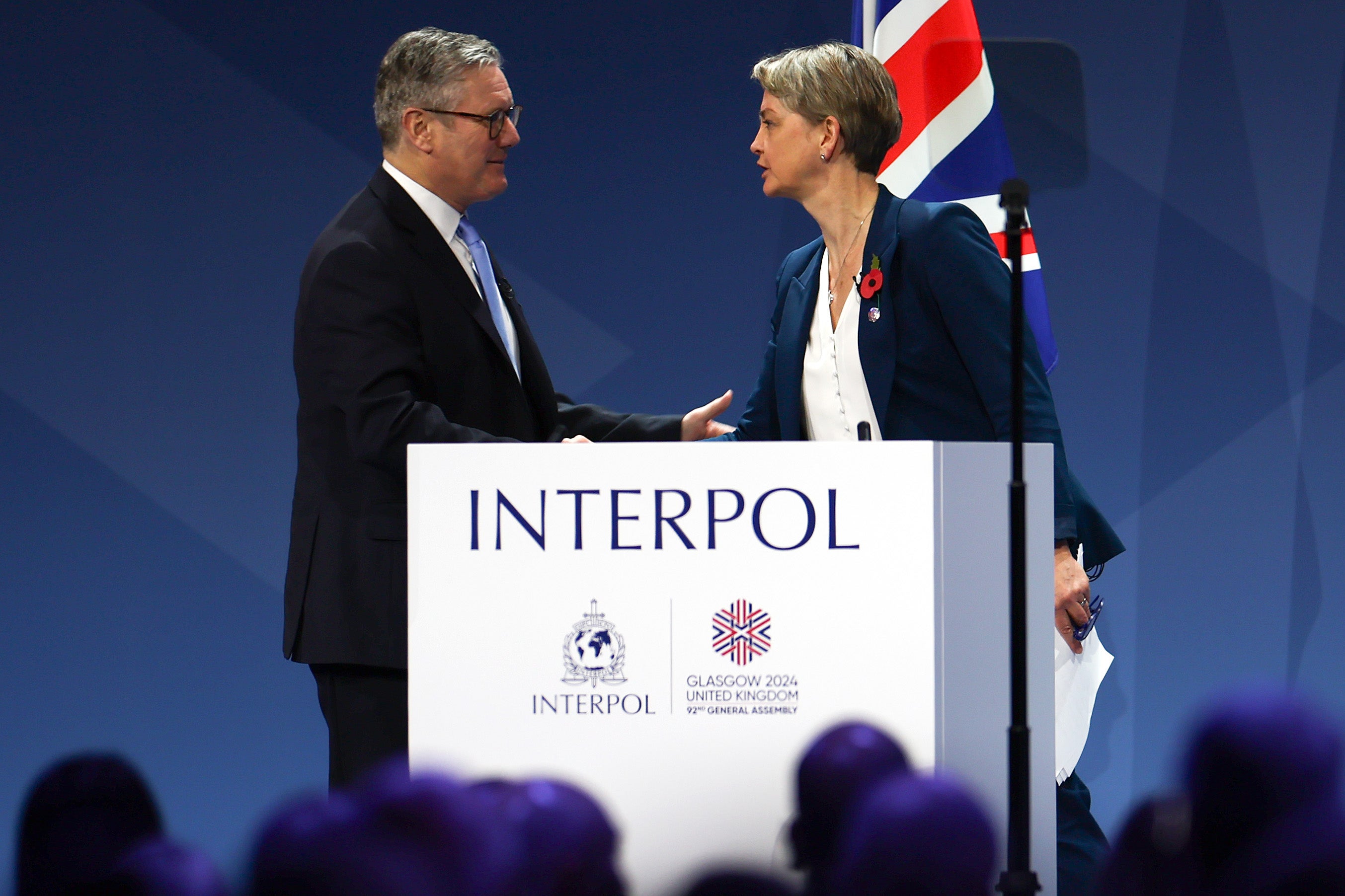Can Keir Starmer succeed in reducing immigration?
Sean O’Grady looks at whether the prime minister can actually make a difference without a major deterrent to illegal crossings

Keir Starmer has announced that the government is to make further progress on its manifesto pledge to “smash the criminal gangs” and reduce the flow of irregular migration in small boats across the English Channel.
At the Interpol General Assembly in Glasgow – complete with pipe band and more than 1,000 police officers from 196 nations – the prime minister reiterated his motivation and determination: “There is nothing progressive about turning a blind eye as men, women and children die in the Channel.” His idea is to raise the importance of the issue: “People-smuggling should be viewed as a global security threat similar to terrorism.”
Will Starmer “Stop the Boats”?
Starmer has come under plenty of criticism for what he himself calls his “choppy” early months in office but he has not, so far, repeated his predecessor Rishi Sunak’s undeliverable pledge to “stop the boats” (which eventually only helped to stop the votes). Starmer and the home secretary, Yvette Cooper, refuse to put any numbers or deadlines for the success of their policy.
What is he going to do?
Spend some more money, get all the many agencies involved to work together and engage in much more international cooperation. He is putting another £75m of “new” money into the effort on top of a similar amount already committed.

The new Border Security Command (BSC) has a boss, Martin Hewitt, a former senior police officer, and he and his team will be provided with enhanced powers through a new Border Security, Asylum and Immigration Bill. So they will be allowed to track people, monitor their activity on the internet, gather covert intelligence, and have the power to detain and intercept suspects. Starmer says the BSC will be in charge of a new Organised Immigration Crime Intelligence Unit, with hundreds of new investigators and intelligence officers, backed by state-of-the-art technology. It will also draw on the expertise of the “best of the best” from the National Crime Agency, Border Force, Immigration Enforcement, the CPS and the intelligence agencies, including GCHQ. It is very much a practical policing and security operation, symbolised by the training of police dogs to sniff out dinghy rubber.
What won’t he do?
A human rights lawyer by background, Starmer says the UK will “never” leave the European Convention on Human Rights (ECHR) and he already, on his first day in office, scrapped the Rwanda plan.
What more might he do in future?
He could follow the example of Italy, which has sent asylum processing offshore to Albania. The difference with the Rwanda scheme is that genuine refugees could still gain asylum in the UK and would not be granted asylum in the offshore processing territory. (The Italian scheme has, however, fallen foul of the courts). Starmer might also want to examine how the German government managed to deport a significant number of migrants, apparently in defiance of the ECHR.
What about that international cooperation?
It is certainly something Starmer, Cooper and David Lammy are working hard on, and they’ve started the process through talks with Emmanuel Macron and Giorgia Meloni and initiating a new UK-German Treaty. The prize would be a migration chapter in a new security pact with the EU. To that end, Starmer will be going to the European Political Community in Hungary this week and will be “putting this issue at the top of the international agenda once again”.
Will the Starmer plan work?
There’s no downside to trying. There has already been some isolated success, for example in rounding up some gang members, but, as with counter-terrorism, the task is never-ending.
Critics point to the lack of a deterrent that would make it futile to attempt asylum, but such a deterrent might only cause more people to try a clandestine landing and evade authorities completely. The government says it is clearing up the large asylum backlog that built up when the formal right to claim refugee status was abolished last year, leaving migrants in legal limbo. Identity cards could be a longer-term, if controversial, part of the answer.
What do the Tories say?
“It is a shame that Starmer has not recognised the extent of the crisis in the Channel sooner, as he and the Labour Party voted against numerous measures to stop the gangs while they were in opposition,” they say. “If Starmer continues to ignore the need for a deterrent to stop migrants crossing the Channel, there will be more deaths in the Channel as more and more migrants continue to cross it.”
It remains to be seen if new leader Kemi Badenoch will promise to resurrect the Rwanda plan or call for a limit, statutory or otherwise, on migration numbers. Unlike Robert Jenrick, she has sounded sceptical about leaving the ECHR, saying she would do so “if necessary” but: “Leaving the ECHR is not radical enough. I will develop the fullest and most detailed plan to control immigration that any political party has ever proposed.”



Join our commenting forum
Join thought-provoking conversations, follow other Independent readers and see their replies
Comments